
1. The Montreux Convention: A Cornerstone of Maritime Stability
The Montreux Convention, signed in 1936, grants Türkiye control over the Turkish Straits and regulates naval passage between the Black Sea and the Mediterranean. Its provisions are designed to balance the interests of littoral states while preventing militarization by non-regional powers. Non-littoral states face restrictions on warship tonnage and duration of stay in the Black Sea, ensuring that regional powers maintain dominance.[1]
Türkiye possesses the authority to close the straits during wartime or when threatened, a mechanism that has been pivotal in preventing escalation during conflicts like Russia’s invasion of Ukraine. [2]
Türkiye’s unwavering commitment to implementing Montreux has been instrumental in maintaining stability. During the Ukraine war, Türkiye blocked Russian warships from accessing the Black Sea unless returning to their home ports.[3] By limiting external naval presence, Türkiye prevents undue interference from non-littoral NATO members while balancing its relationships with both NATO and Russia.[4]
Implications for Regional Powers
Russia must respect Montreux’s provisions to avoid provoking tensions with Türkiye or NATO allies. Similarly, EU-led initiatives in the Black Sea must align with this framework to ensure their activities do not undermine regional stability.
2.The Organization of The Black Sea Economic Cooperation (BSEC): Promoting Economic Cooperation for Peace
The Black Sea Economic Cooperation (BSEC), established in 1992 through the Bosphorus Declaration, emerged as a Turkish-led initiative to foster multilateral economic collaboration amid post-Cold War geopolitical shifts. It is a fact that the Wider Black Sea Basin is a region that includes the Balkan Peninsula, the Caucasus and the northern and southern shores of the Black Sea linking the Caspian and Mediterranean Seas as well as the Middle East and Southeastern Europe. Located at this strategic spot, it was natural for Türkiye to take the initiative in the early 1990s and propose a regional cooperative arrangement that would ensure that the Black Sea becomes a region of peace, stability and cooperation.[5] Its principles emphasize mutual respect, dialogue, and development across various sectors such as trade, energy, and transportation.[6] It must be acknowledged that Türkiye’s leadership, particularly under President Turgut Özal, played a pivotal role in overcoming regional hostilities and historical grievances to create a platform emphasizing mutual respect, dialogue, and development. [7]
The organization’s founding principles aimed to transform the Black Sea into a "zone of prosperity" by leveraging economic interdependence to mitigate conflicts, a vision rooted in Türkiye’s strategic calculus to enhance regional stability while positioning itself as a key actor in Eurasia.[8]
Türkiye’s Strategic Motivations and Institutional Design
As underlined above, Türkiye played a central role in establishing BSEC and continues to advocate for its principles. BSEC provides a platform for dialogue even among adversaries like Russia and Ukraine.[9] Türkiye’s active participation underscores its belief in regional cooperation as a pathway to peace.[10]
By capitalizing on its unique position bridging Europe, Asia, and the Middle East, Türkiye sought to solidify its role as a regional power. The initiative provided a framework to engage post-Soviet states transitioning to market economies, thereby expanding Ankara’s diplomatic influence[6][9].
BSEC’s focus on trade facilitation, infrastructure projects, and energy cooperation aligned with Türkiye’s goal of modernizing its economy and integrating into global markets. Efforts to eliminate non-tariff barriers and establish a BSEC Free Trade Area (FTA) aimed to harness the region’s $320 billion intra-trade potential, though divergent EU affiliations among members complicated implementation.[11]
By including adversarial states, BSEC became a rare forum for dialogue, indirectly addressing frozen conflicts through economic confidence-building measures.[12]
Operationalizing Cooperation: Challenges and Achievements
BSEC’s institutional evolution—from a declaratory initiative to a charter-based organization in 1999—reflects Türkiye’s sustained commitment.
The 2012 Economic Agenda prioritized visa facilitation, statistical data sharing, and SME development. Türkiye’s chairmanship in 2012 advanced projects like the BSEC Trade Center in Bursa and revived the Coordination Center for Statistical Data, enhancing transparency in regional commerce.[13]
Initiatives such as the Green Energy Development Task Force promoted renewable energy collaboration, while Türkiye’s mediation in the Black Sea Grain Deal (2022–2023) underscored BSEC’s role in addressing global food security amid the Russia-Ukraine war.[14]
Beyond economics, BSEC’s working groups on organized crime, environmental protection, and youth involvement broadened its mandate, aligning with Türkiye’s "comprehensive vision" for regional resilience.
3. Geopolitical Dynamics: Balancing Power Without Destabilization
The Black Sea serves as a strategic gateway connecting Europe, Central Asia, and the Middle East. This unique geographical positioning has made it a focal point for competing interests among regional and global powers, heightening instability in recent years. The interplay of military strategies, economic initiatives, and diplomatic maneuvers by key actors such as Russia, the European Union (EU), and Türkiye underscores the complex dynamics shaping the region.
Russia’s Assertive Policies
Russia views the Black Sea as critical to its geopolitical ambitions. Over the years, it has significantly bolstered its military presence in the region, deploying naval assets and employing hybrid warfare tactics targeting littoral states like Ukraine and Georgia. For instance, Russia's expanded military footprint in Crimea since 2014 has enabled it to establish an anti-access/area denial (A2/AD) zone that covers almost the entire Black Sea. This strategy combines ground-based and ship-based missiles with electronic warfare capabilities to restrict military movement and deny freedom of navigation to adversaries. Dmitry Gorenburg notes that this interlocking air defense system effectively inhibits military action against Russia's forces in the region. [15]
In addition to militarization, Russia has pursued coercive measures such as naval blockades and grain export restrictions to strengthen its grip on the Black Sea. Following its full-scale invasion of Ukraine in 2022, Moscow imposed blockades on Ukrainian ports, crippling Ukraine's maritime trade while signaling its dominance over critical sea routes. Furthermore, Russia's plans to establish a permanent naval base in Ochamchire, Abkhazia—a move that could host ships equipped with cruise missiles—highlight its intent to solidify control over strategic coastal territories.These actions not only threaten regional security but also disrupt global trade routes, including those connecting Asia and Europe.
The EU’s Strategic Vision
The EU has recalibrated its approach to the Black Sea following Russia's aggressive policies. Recognizing the region's strategic importance as a hub for energy and transport flows, the EU has launched initiatives aimed at fostering resilience among post-Soviet states such as Moldova and Georgia. One notable example is the Eastern Partnership (EaP), which seeks to promote democratic reforms, economic development, and security cooperation in Eastern Europe.[16] Additionally, the EU's focus on economic corridors like the Trans-Caspian International Transport Route (Middle Corridor) underscores its interest in reducing dependence on Russian-controlled routes.[17] This corridor offers an alternative trade pathway connecting Central Asia to Europe via Türkiye and Georgia, bypassing Russian territory.
Despite these efforts, the EU faces challenges in implementing cohesive policies due to unresolved conflicts in the region and competing interests among member states. The Black Sea Synergy initiative exemplifies the EU's attempt to address these issues by promoting regional cooperation in areas such as energy security, environmental protection, and conflict resolution.[18] However, its effectiveness remains limited by geopolitical tensions and Russia's resistance to multilateral frameworks.
Türkiye’s Balancing Act
Türkiye occupies a unique position in the Black Sea region by maintaining regional ownership while cooperating with both NATO and Russia. This balancing act is evident in Türkiye's diplomatic initiatives such as the Black Sea Grain Deal, which facilitated grain exports from Ukrainian ports despite ongoing conflict. [19] By mediating between Russia and Ukraine, Türkiye demonstrated its ability to address global challenges like food security while preserving regional stability.
Moreover, Türkiye's defense ties with Ukraine highlight its strategic autonomy without provoking escalation. For instance, Türkiye has supplied Ukraine with Bayraktar TB2 drones—an action that bolsters Ukraine's resistance against Russian aggression while maintaining Türkiye's credibility as a NATO ally. [20] At the same time, Türkiye adheres to frameworks like the Montreux Convention to regulate naval passage through the Turkish Straits. This commitment ensures that external powers do not militarize the Black Sea beyond permissible limits, thereby preventing further destabilization.[21]
Concluding Remarks
Türkiye has been one of the countries that has felt the global upheavals most severely in the last few years. When the negativities around Türkiye are examined, it is possible to say that it is virtually caught in a ring of fire. In the north, the Russia-Ukraine war, which has had a profound effect on European security, has emerged. In this war, Türkiye has undertaken the heavy responsibility of maintaining security in the Black Sea region and has effectively fulfilled this responsibility. In the south, Israel-Palestine, the Israel-Hezbollah conflict in Lebanon, the new situation in Syria, terrorist organizations nestling along the southern border, the Azerbaijan-Armenia ceasefire status in the east, which has still not been concluded with a peace agreement, developments that may have global consequences in case of Iran, remain current.
While Türkiye’s heavy responsibilities not only in terms of regional security and stability but also in terms of security and stability at the global level are evident, it seems impossible to understand why the EU is engaging in initiatives that could create not only damaging security and stability in the Wider Black Sea Region, but also create unrest in Eurasia. The latest example of this short-sided approach is the irrelevant and biased reference to the island of Cyprus at the European Union (EU) – Central Asian Countries Summit held in Samarkand, Uzbekistan on April 3-4, 2025. There is a detailed information on this subject in the AVİM analysis that we reference below.[22]
The EU's "bribery policy" towards Central Asian countries under the guise of financial aid and investment, is an approach that will ultimately harm the EU. If the EU wants to maintain security in Europe, it should stay away from these short-sighted approaches.
[1] David Scott, “What the Montreux Convention Is and What It Means for the Ukraine War,” The Conversation, March 1, 2022, https://theconversation.com/what-the-montreux-convention-is-and-what-it-means-for-the-ukraine-war-178136 ; Republic of Türkiye Ministry of Foreign Affairs. “Implementation of the Montreux Convention.” Accessed April 15, 2025. https://www.mfa.gov.tr/implementation-of-the-montreux-convention.en.mfa
[2] David Scott, “What the Montreux Convention Is and What It Means for the Ukraine War,” The Conversation, March 1, 2022, https://theconversation.com/what-the-montreux-convention-is-and-what-it-means-for-the-ukraine-war-178136 ; Daily Sabah with AA. “Türkiye Says Commitment to Montreux Convention ‘Unwavering.’” Daily Sabah, January 30, 2024. https://www.dailysabah.com/politics/diplomacy/turkiye-says-commitment-to-montreux-convention-unwavering
[3] David Scott, “What the Montreux Convention Is and What It Means for the Ukraine War,” The Conversation, March 1, 2022, https://theconversation.com/what-the-montreux-convention-is-and-what-it-means-for-the-ukraine-war-178136 ; Daily Sabah with AA. “Türkiye Says Commitment to Montreux Convention ‘Unwavering.’” Daily Sabah, January 30, 2024. https://www.dailysabah.com/politics/diplomacy/turkiye-says-commitment-to-montreux-convention-unwavering
[4] Yevgeniya Gaber, “Türkiye’s Policy towards the Black Sea Region in the Aftermath of the Russian Full-Scale Invasion of Ukraine: Is Change Possible?” Analytical Portal, accessed April 15, 2025, https://analytics.intsecurity.org/en/turkiye-policy-towards-the-black-sea-region/
[5] Ertuğrul Apakan (Ambassador, Undersecretary of the Ministry of Foreign Affairs of the Republic of Türkiye). Türkiye’s Approach to the Black Sea Region and to the Organization of The Black Sea Economic Cooperation (BSEC). Ministry of Foreign Affairs of Türkiye web page. https://www.mfa.gov.tr/turkiye_s-approach-to-the-black-sea-region-and-to-the-organization-of-the-black-sea-economic-cooperation-_bsec_-.tr.mfa
[6] Deniz Ünver, “Black Sea Security and the Significance of BSEC in the Region,” AVİM Blog, October 31, 2022, https://avim.org.tr/Blog/BLACK-SEA-SECURITY-AND-THE-SIGNIFICANCE-OF-BSEC-IN-THE-REGION-31-10-2022.
[7] Myeong Joo Kim, The Creation of the Black Sea Economic Cooperation (BSEC) (Master’s thesis, Department of International Relations, İhsan Doğramacı Bilkent University, September 2021), https://repository.bilkent.edu.tr/bitstreams/d1c7d5fb-cc7a-432a-87b3-19914ebad0ef/download ; Šejla Jusufovic, “Turkey-Black Sea Economic Cooperation (BSEC) Relations,” Uluslararası Politika Akademisi (UPA), May 14, 2013, https://politikaakademisi.org/2013/05/14/turkey-black-sea-economic-cooperation-bsec-relations/
[8] Šejla Jusufovic, “Turkey-Black Sea Economic Cooperation (BSEC) Relations,” Uluslararası Politika Akademisi (UPA), May 14, 2013, https://politikaakademisi.org/2013/05/14/turkey-black-sea-economic-cooperation-bsec-relations/ ; Remziye Yılmaz Bozkus, “Turkey’s Relations and Energy Cooperation with the BSEC,” Insight Turkey 21, no. 3 (Summer 2019): 123–138, https://www.insightturkey.com/articles/turkeys-relations-and-energy-cooperation-with-the-bsec
[9] Deniz Ünver, “Black Sea Security and the Significance of BSEC in the Region,” AVİM Blog, October 31, 2022, https://avim.org.tr/Blog/BLACK-SEA-SECURITY-AND-THE-SIGNIFICANCE-OF-BSEC-IN-THE-REGION-31-10-2022
[10] Deniz Ünver, “Black Sea Security and the Significance of BSEC in the Region,” AVİM Blog, October 31, 2022, https://avim.org.tr/Blog/BLACK-SEA-SECURITY-AND-THE-SIGNIFICANCE-OF-BSEC-IN-THE-REGION-31-10-2022. ; Daria Isachenko and Erol Kaymak, Turkey’s Strategic Autonomy in the Black Sea and the Eastern Mediterranean, SWP Comment 2024/C 39 (Berlin: Stiftung Wissenschaft und Politik, September 6, 2024), https://www.swp-berlin.org/publikation/turkeys-strategic-autonomy-in-the-black-sea-and-the-eastern-mediterranean
[11] Republic of Türkiye Ministry of Foreign Affairs. “Türkiye’s Approach to the Black Sea Region and to the Organization of the Black Sea Economic Cooperation (BSEC).” Accessed April 15, 2025. https://www.mfa.gov.tr/turkiye_s-approach-to-the-black-sea-region-and-to-the-organization-of-the-black-sea-economic-cooperation-_bsec_-.tr.mfa.
[12] Myeong Joo Kim, The Creation of the Black Sea Economic Cooperation (BSEC) (Master’s thesis, Department of International Relations, İhsan Doğramacı Bilkent University, September 2021), https://repository.bilkent.edu.tr/bitstreams/d1c7d5fb-cc7a-432a-87b3-19914ebad0ef/download ; https://politikaakademisi.org/2013/05/14/turkey-black-sea-economic-cooperation-bsec-relations/ .
[13] Republic of Türkiye Ministry of Foreign Affairs. “Türkiye’s Approach to the Black Sea Region and to the Organization of the Black Sea Economic Cooperation (BSEC).” Accessed April 15, 2025. https://www.mfa.gov.tr/turkiye_s-approach-to-the-black-sea-region-and-to-the-organization-of-the-black-sea-economic-cooperation-_bsec_-.tr.mfa ; Šejla Jusufovic, “Turkey-Black Sea Economic Cooperation (BSEC) Relations,” Uluslararası Politika Akademisi (UPA), May 14, 2013, https://politikaakademisi.org/2013/05/14/turkey-black-sea-economic-cooperation-bsec-relations/.
[14] Faruk Hanedar, “Organization of Black Sea Economic Cooperation Make Advancements for Regional Issues in 2023,” Anadolu Agency, December 30, 2023, https://www.aa.com.tr/en/world/organization-of-black-sea-economic-cooperation-make-advancements-for-regional-issues-in-2023/3096022
[15] Dmitry Gorenburg, " Is a New Russian Black Sea Fleet Coming? Or Is It Here?," War On The Rocks. https://warontherocks.com/2018/07/is-a-new-russian-black-sea-fleet-coming-or-is-it-here/ .
[16] European Commission Staff Writers, "Regional Cooperation with Eastern Partners," European Commission, https://enlargement.ec.europa.eu/european-neighbourhood-policy/regional-cooperation-eastern-partners_en , 2023.
[17] European Commission Staff Writers, "Trans-Caspian International Transport Route," European Commission, 2023, https://transport.ec.europa.eu/system/files/2023-06/Sustainable_transport_connections_between_Europe_and_Central_Asia.pdf.
[18] European Commission Staff Writers, "Black Sea Synergy Initiative," *European Commission*, https://www.europarl.europa.eu/doceo/document/CRE-6-2007-11-14_EN.html, 2007.
[19] European Commission Staff Writers, "Black Sea Synergy Initiative," *European Commission*, https://www.europarl.europa.eu/doceo/document/CRE-6-2007-11-14_EN.html, 2007.
[20] Defense News Staff Writers, " Turkey delivers first armed drone to Ukrainian Navy, much to Russia’s ire," Defense News, https://www.defensenews.com/unmanned/2021/07/26/turkey-delivers-first-armed-drone-to-ukraine-much-to-russias-ire/ , 2021.
[21] GIS Reports Analysts, "Balance of Power Shifts in Black Sea," GIS Reports Online, https://www.gisreportsonline.com/r/turkey-black-sea/ April 2024.
[22] Hazel Çağan Elbir. Reflections On The Eu – Central Asia Summit. Analysis No: 2025 / 5. 14.04. 2025. https://avim.org.tr/en/Analiz/REFLECTIONS-ON-THE-EU-CENTRAL-ASIA-SUMMIT
© 2009-2025 Center for Eurasian Studies (AVİM) All Rights Reserved
No comments yet.
-
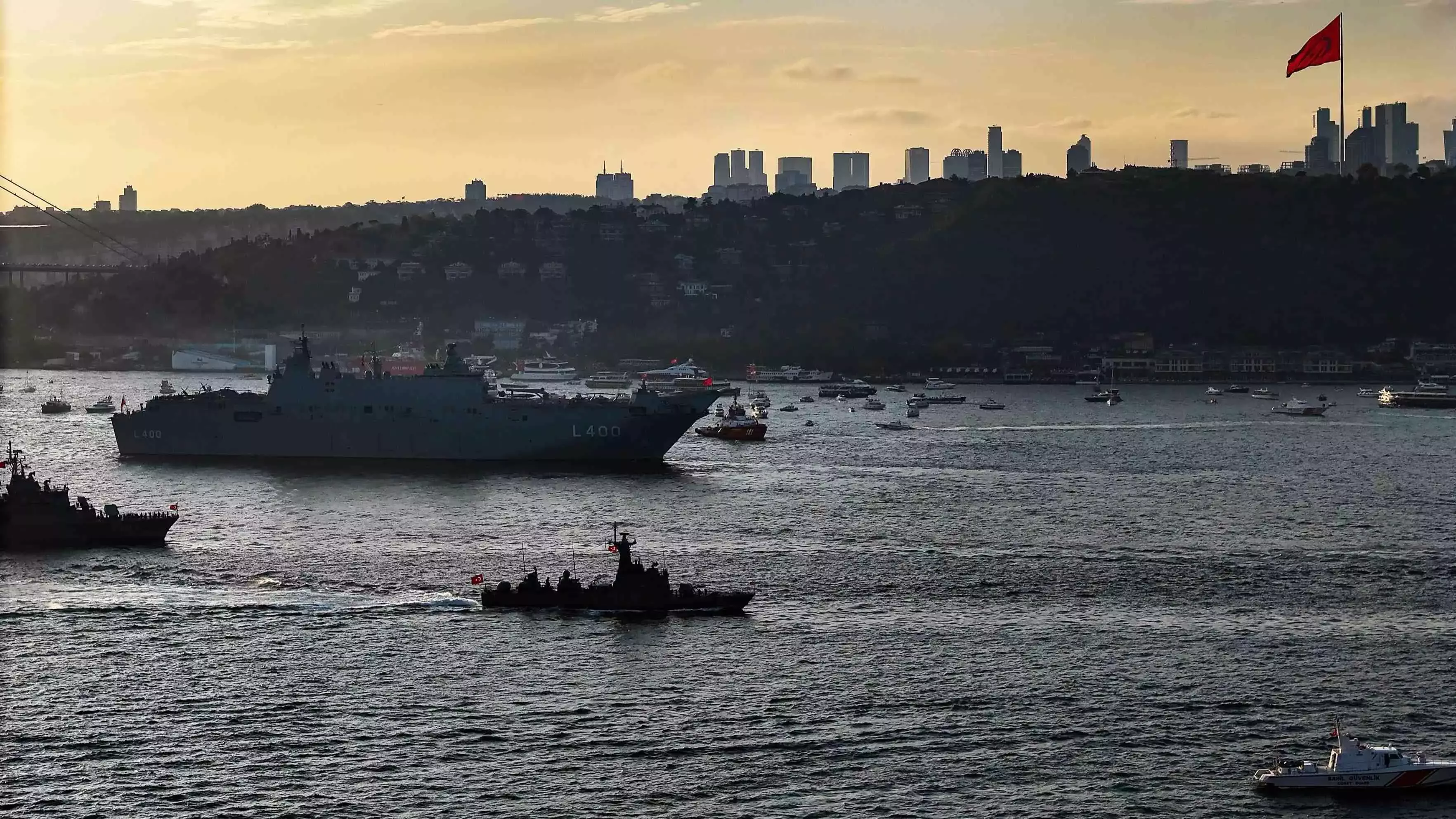 EFFORTS TO CHANGE OR CIRCUMVENT THE PROVISIONS OF THE 1936 MONTREUX STRAITS CONVENTION
EFFORTS TO CHANGE OR CIRCUMVENT THE PROVISIONS OF THE 1936 MONTREUX STRAITS CONVENTION
Teoman Ertuğrul TULUN 28.03.2024 -
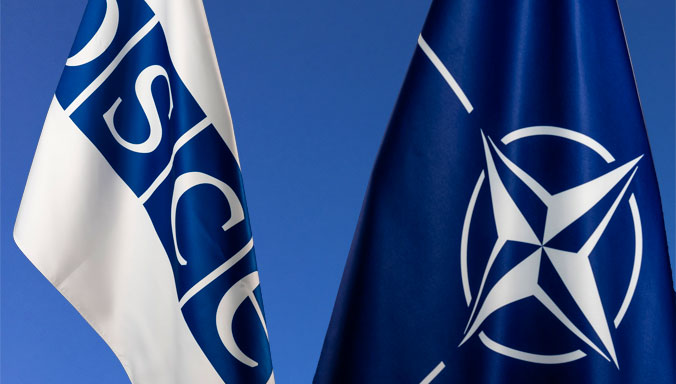 NATO IS NOT BRAIN-DEAD: HOW CAN OSCE AND NATO HELP STOP THE WAR IN UKRAINE?
NATO IS NOT BRAIN-DEAD: HOW CAN OSCE AND NATO HELP STOP THE WAR IN UKRAINE?
Teoman Ertuğrul TULUN 08.03.2022 -
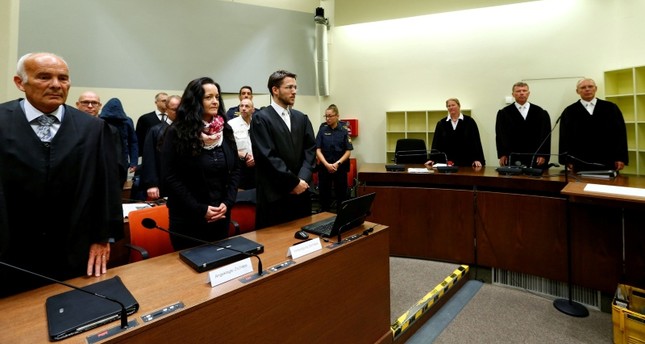 FAR-RIGHT VIOLENCE AND TERRORISM RISES IN GERMANY: NATIONAL SOCIALIST UNDERGROUND (NSU) TERRORIST GROUP AND THE MURDERS OF EIGHT TURKISH-GERMAN CITIZENS
FAR-RIGHT VIOLENCE AND TERRORISM RISES IN GERMANY: NATIONAL SOCIALIST UNDERGROUND (NSU) TERRORIST GROUP AND THE MURDERS OF EIGHT TURKISH-GERMAN CITIZENS
Teoman Ertuğrul TULUN 26.08.2019 -
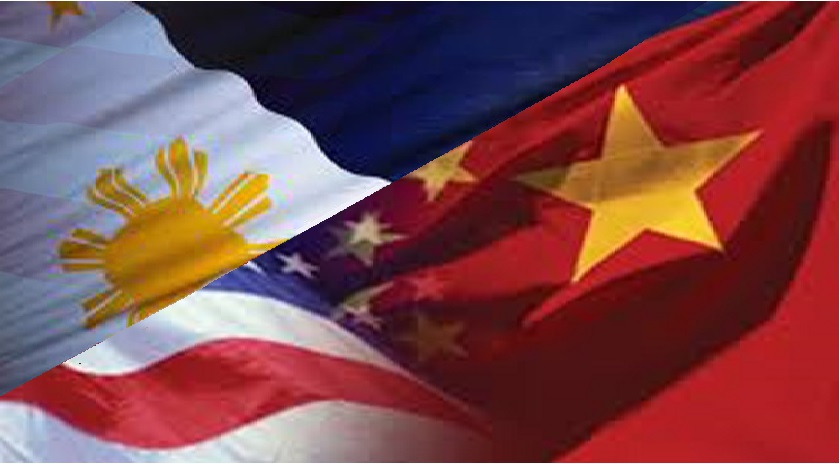 SOUL-SEARCHING IN SOUTHEAST ASIA: EMERGING RIFTS BETWEEN OLD FRIENDS AND NEW FOREIGN POLICY DIRECTIONS
SOUL-SEARCHING IN SOUTHEAST ASIA: EMERGING RIFTS BETWEEN OLD FRIENDS AND NEW FOREIGN POLICY DIRECTIONS
Teoman Ertuğrul TULUN 17.01.2017 -
 FRANCE'S COLONIAL SINS IN AFRICA: IS FRANCE REALLY NOT AN ACCOMPLICE TO THE RWANDAN GENOCIDE?
FRANCE'S COLONIAL SINS IN AFRICA: IS FRANCE REALLY NOT AN ACCOMPLICE TO THE RWANDAN GENOCIDE?
Teoman Ertuğrul TULUN 28.06.2021
-
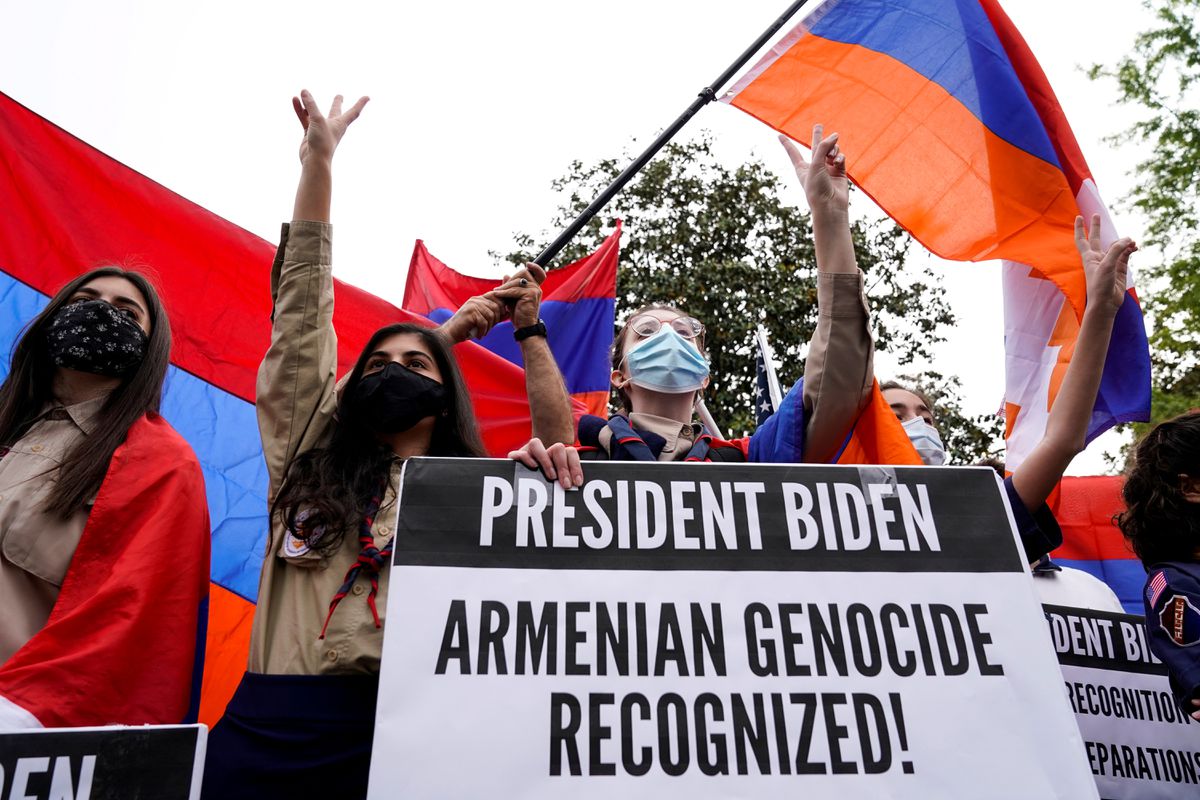 GENOCIDE ACCUSATION AS A FORM OF PUNISHMENT - III
GENOCIDE ACCUSATION AS A FORM OF PUNISHMENT - III
Mehmet Oğuzhan TULUN 27.04.2021 -
 EXTREME RIGHT IS GAINING STRENGTH IN GERMANY
EXTREME RIGHT IS GAINING STRENGTH IN GERMANY
Hazel ÇAĞAN ELBİR 21.02.2020 -
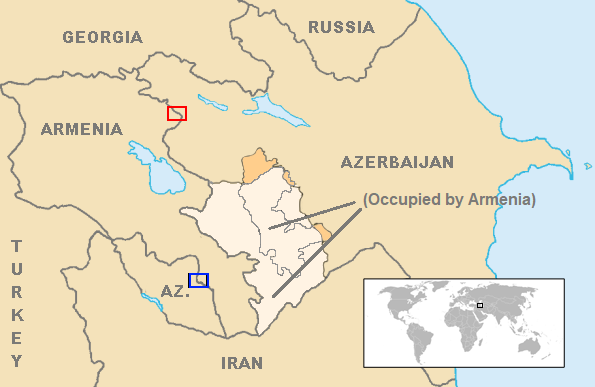 FROM POINT SHOTS TO ARMED CONFLICT: HOW DID AZERBAIJAN-ARMENIA REACH THE BRINK OF WAR?
FROM POINT SHOTS TO ARMED CONFLICT: HOW DID AZERBAIJAN-ARMENIA REACH THE BRINK OF WAR?
Tutku DİLAVER 14.08.2020 -
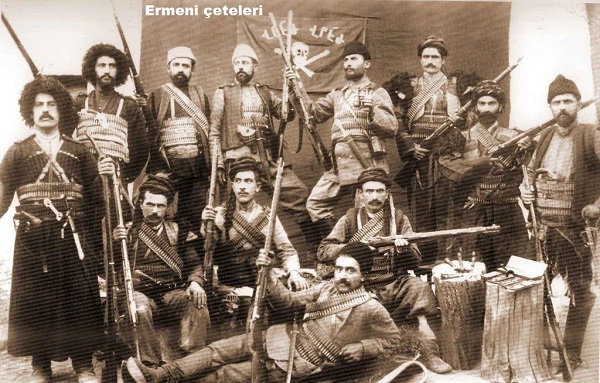 DASHNAK FEDAIS: HEROES OR CALAMITIES OF THE ARMENIAN PEOPLE?
DASHNAK FEDAIS: HEROES OR CALAMITIES OF THE ARMENIAN PEOPLE?
AVİM 20.12.2019 -
 FROM DISTANT FRONTIERS TO A LONG CHAIN OF EXTREMISM: MEHMET REFET BEY AND EARLY ARMENIAN TERRORISM (1916)
FROM DISTANT FRONTIERS TO A LONG CHAIN OF EXTREMISM: MEHMET REFET BEY AND EARLY ARMENIAN TERRORISM (1916)
Hazel ÇAĞAN ELBİR 11.02.2026
-
25.01.2016
THE ARMENIAN QUESTION - BASIC KNOWLEDGE AND DOCUMENTATION -
12.06.2024
THE TRUTH WILL OUT -
27.03.2023
RADİKAL ERMENİ UNSURLARCA GERÇEKLEŞTİRİLEN MEZALİMLER VE VANDALİZM -
17.03.2023
PATRIOTISM PERVERTED -
23.02.2023
MEN ARE LIKE THAT -
03.02.2023
BAKÜ-TİFLİS-CEYHAN BORU HATTININ YAŞANAN TARİHİ -
16.12.2022
INTERNATIONAL SCHOLARS ON THE EVENTS OF 1915 -
07.12.2022
FAKE PHOTOS AND THE ARMENIAN PROPAGANDA -
07.12.2022
ERMENİ PROPAGANDASI VE SAHTE RESİMLER -
01.01.2022
A Letter From Japan - Strategically Mum: The Silence of the Armenians -
01.01.2022
Japonya'dan Bir Mektup - Stratejik Suskunluk: Ermenilerin Sessizliği -
03.06.2020
Anastas Mikoyan: Confessions of an Armenian Bolshevik -
08.04.2020
Sovyet Sonrası Ukrayna’da Devlet, Toplum ve Siyaset - Değişen Dinamikler, Dönüşen Kimlikler -
12.06.2018
Ermeni Sorunuyla İlgili İngiliz Belgeleri (1912-1923) - British Documents on Armenian Question (1912-1923) -
02.12.2016
Turkish-Russian Academics: A Historical Study on the Caucasus -
01.07.2016
Gürcistan'daki Müslüman Topluluklar: Azınlık Hakları, Kimlik, Siyaset -
10.03.2016
Armenian Diaspora: Diaspora, State and the Imagination of the Republic of Armenia -
24.01.2016
ERMENİ SORUNU - TEMEL BİLGİ VE BELGELER (2. BASKI)
-
AVİM Conference Hall 24.01.2023
CONFERENCE TITLED “HUNGARY’S PERSPECTIVES ON THE TURKIC WORLD"









